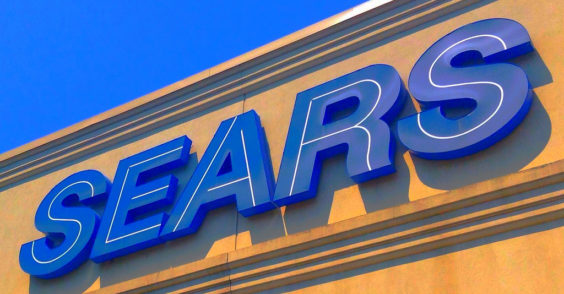
Call it a case of good news, bad news for an Illinois man who sued Sears for improperly charging him sales tax on a purchase he made using a coupon. A state appeals court has upheld a lower court ruling that granted Mario Aliano the $3.10 he said Sears illegally overcharged him.
Great news for him, after a lengthy legal battle. Unfortunately, though, the court has also thrown out a $157,813.53 judgment to cover his legal fees.
So now Aliano has just over three bucks to show for his trouble – and attorneys who are itching to get paid for their seven years of work on the case.
If Aliano is on the hook for the full amount, that may turn out to have been one very expensive coupon.
Aliano sued back in April 2009, after buying a digital-to-analog television converter box at Sears. At the time, the federal government’s National Telecommunications and Information Administration (NTIA) was offering $40 coupons to help subsidize converter box purchases. The boxes allowed citizens with older TVs to continue to receive over-the-air television signals, as broadcasters transitioned to digital-only transmission.
Aliano used one of the NTIA coupons to buy a $59.99 converter box for $19.99. But the cashier charged him $4.65 in sales tax – based on the full price – rather than $1.55, on the discounted total.
The question of how to calculate sales tax on purchases made with coupons comes up from time to time, since different states have different regulations about how to tax manufacturer and store coupons. But the NTIA coupons were a special case, so each state reached its own conclusions about whether to tax them.
And Illinois decided not to. A year before Aliano’s purchase, the Illinois Department of Revenue informed all retailers in the state that NTIA coupons were exempt from Illinois sales tax, so tax should be calculated only after the coupon was applied.
But apparently not everyone at Sears got the memo. In April 2009 alone, the trial court found, Sears improperly charged sales tax on the value of the NTIA coupons a total of 281 times.
So Aliano sued, on behalf of himself and the others who were overcharged.
But Sears fought back. The retailer branded Aliano a “professional class action plaintiff”, who had filed nearly two dozen similar lawsuits in recent years. Aliano knew full well that he would be incorrectly charged, Sears claimed, and merely “went shopping for a lawsuit.”
The case raised a number of issues. Did Sears act illegally in overcollecting tax, mistakenly or otherwise? Did it matter whether Aliano knew he would be overcharged, or only found out after he paid? Did Sears remit to the state the proper amount of sales tax, and keep the excess for itself? And was there a better way for Aliano to resolve the issue, other than racing to the courthouse to sue, just two weeks after his purchase?
Aliano’s case went to trial in 2013, after he withdrew his motion for class certification. And he won – the trial court granted him the $3.10 he was overcharged, plus $157,813.53 in attorney fees.
Sears appealed, and last week, the appeals court upheld the $3.10 portion of the judgment, but threw out the $157,813.53. Fortunately for Aliano, and his attorneys, that doesn’t mean they’ll get nothing. The appeals court questioned how the legal fees were calculated, so it sent the case back to the lower court to more accurately “determine the reasonable fees to which the plaintiff is entitled.”
In winning the $3.10 alone, though, Aliano already had greater success than another Illinois man who filed a similar lawsuit at about the same time. Adrian Nava was also wrongly charged sales tax when using an NTIA coupon in 2009, and also sued. Sears told the trial court in that case, that the overcharges were due to cashier error, and not company policy. So that court ruled in favor of Sears and put the blame on Nava, for failing to request a refund after he discovered he was overcharged.
An appeals court overturned that decision, and the case eventually settled out of court. Terms were not disclosed. But it might be safe to assume that, in exchange for dropping his case, Nava was able to negotiate a more attractive payout than just $3.10.
So there may be hope for Aliano yet. If he ultimately earns a bigger payout and is able to pay off his attorneys, he might even be able to afford a new TV. Hopefully, for his sake, one that doesn’t require a converter box.










